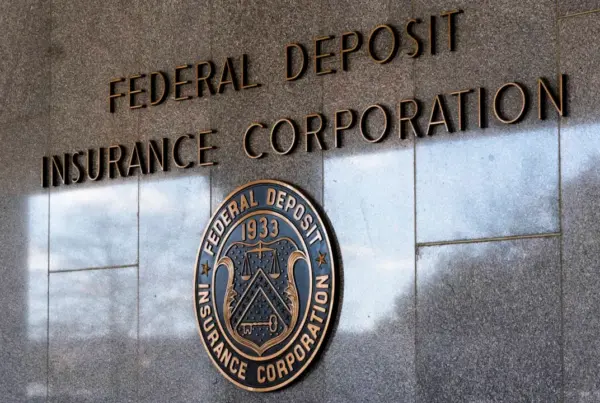FDIC’s New Brokered Deposits Rule: What Banks Need to Know
Introduction
On [insert date], the Federal Deposit Insurance Corporation (FDIC) announced a significant regulatory update regarding brokered deposits, aimed at enhancing the safety and soundness of the banking system. This proposed rule is a response to evolving market dynamics and increased complexity in deposit arrangements, especially given the growing role of fintech companies. Historically, brokered deposits were regulated under the Federal Deposit Insurance Act, with a focus on defining their regulatory treatment. The primary concern is the potential risk posed by certain deposit arrangements which could threaten the stability of insured depository institutions.
Key Regulatory Changes & Analysis
1. Expansion of the Definition of Deposit Broker
The proposed rule broadens the definition of a deposit broker to include additional entities that facilitate the placement of deposits. This change reflects the FDIC’s recognition of the diverse range of financial intermediaries operating today.
- Previous Definition: Primarily defined as entities soliciting deposits from the public to place with banks.
- New Definition: Now encompasses a wider array of entities, including those using digital platforms for deposit placement.
2. New Registration Requirements
The FDIC’s proposal introduces new registration requirements for entities classified as deposit brokers.
- Registration Process: Entities must register with the FDIC, ensuring transparency and accountability.
- Compliance Timeline: Affected parties must comply within [insert specific timeframe].
3. Enhanced Reporting Obligations
The proposed rule mandates enhanced reporting obligations for banks and deposit brokers.
- Data Submission: Banks must report detailed information about brokered deposits, including source and nature.
- Frequency of Reporting: The FDIC will determine the frequency, potentially increasing compliance costs.
4. Impact on Financial Institutions
The regulatory changes will significantly affect banks, fintech companies, and other financial institutions that utilize brokered deposits.
- Increased Compliance Burden: Institutions face heightened compliance obligations, necessitating operational adjustments.
- Market Dynamics: Changes may alter competitive dynamics, particularly affecting smaller banks reliant on brokered deposits.
Legal and Industry Implications
The new regulations present several compliance burdens and potential legal challenges for affected businesses:
- Compliance Costs: Financial institutions may incur significant costs for compliance and operational changes, including technology investments and personnel training.
- Regulatory Risks: Non-compliance could lead to FDIC enforcement actions, including fines and restrictions.
- Litigation Risks: Expanded definitions may lead to legal challenges from entities disputing their classification.
Recommended Actions & Compliance Strategies
Affected parties should take proactive measures to ensure compliance with the new regulations:
- Review and Update Contracts: Financial institutions should align existing contracts with new definitions and requirements.
- Prepare for Registration: Entities qualifying as deposit brokers must begin the registration process promptly.
- Engage Legal Counsel: Consulting experts in financial regulations can help navigate new complexities.
Public Comments
The FDIC is accepting public comments on the proposed rule until [insert deadline]. Stakeholders are encouraged to participate in this process to express concerns or support for the changes.
Conclusion & Next Steps
The FDIC’s proposed rule on brokered deposits marks a significant shift in the regulatory landscape for financial institutions. Key takeaways include the expanded definition of deposit brokers, new registration requirements, and enhanced reporting obligations. Implementation is expected to unfold over the next [insert timeframe], with potential legal challenges as stakeholders adjust. Financial institutions should remain vigilant to mitigate risks and ensure compliance. As the regulatory environment evolves, further updates from the FDIC may require ongoing industry attention.


